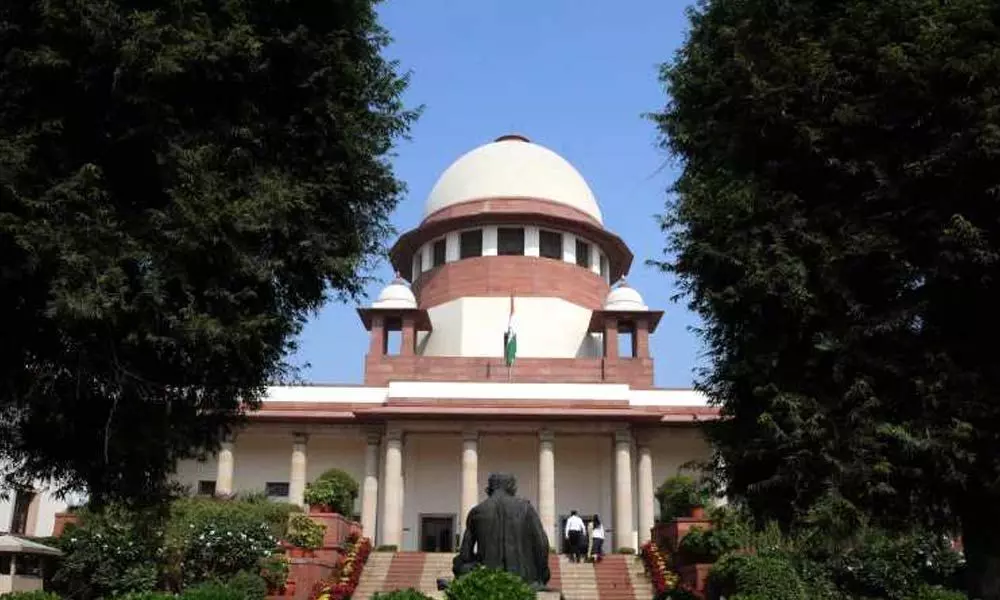Live
- Sensex, Nifty slip under pressure amid weak global cues
- Posters on novel solutions to problems at Tech Summit
- Conduct Tiruchanoor fest akin to Tirumala’s: TTD EO
- Allocate Khelo India funds for sports infra in SVU
- BJP stages protests in various dists over alleged Waqf encroachments
- CM defends BPL ration card cancellation
- Industry should make use of Rs 1-trn ANRF fund: Goyal
- TTD chairman meets Telangana CM
- MITS faculty awarded with PhD by VTU
- Sannapureddy takes charge as RTC regional chairman
Just In
Terrorists can't claim privileges of privacy: Centre tells Supreme Court


Solicitor General Tushar Mehta stressed a balance between national interest, sovereignty of the country and privacy, adding the government is not invading privacy of citizens.
NEW DELHI: The Centre while stressing guidelines over social media regulation on Tuesday told the Supreme Court terrorists can not claim privileges of privacy.
Representing the Centre, Solicitor General Tushar Mehta told a bench of Justices Deepak Gupta and Aniruddha Bose that no intermediary can claim to be safe and secure if they fail to provide details of terrorists and anti-national people.
He also stressed a balance between national interest, sovereignty of the country and privacy, adding the government is not invading privacy of citizens.
"No intermediary can say that in the guise of privacy, terrorist activities can be protected," Mehta said.
His submission came in response to submissions made by the Internet Freedom Foundation counsel and senior advocate Shyam Divan that the case was momentous, as personal freedom and the rights of citizens cannot be trampled upon.
Attorney General KK Venugopal, arguing for State of Tamil Nadu, told the court that provisions of the Information Technology Act provide for decryption of data and information and those sections have not been challenged, so intermediaries cannot claim they cannot decrypt.
Justice Deepak Gupta asked whether can the intermediaries can be forced to decrypt data.
Senior Advocate Mukul Rohatgi, appearing for Facebook, said that there is no obligation on intermediaries and that social media platforms do not have the key to decrypt messages.
Venugopal said that Information Technology Act was amended to favour lawful interception, monitoring, decryption of information through computer resources and that WhatsApp and Facebook after coming to India cannot say they can't decrypt information.
Meanwhile, accepting Facebook's plea, the Supreme Court allowed transfer of various petitions, related to guidelines for regulation of the social media in India, from different high courts to the top court.
The matter will be heard in January after the Centre formulates new guidelines on intermediaries.
The apex court was hearing Facebook's plea seeking transfer of various petitions from different high courts to the Supreme Court.
Facebook had said that transfer of cases would serve the interests of justice by avoiding the possibility of conflicting decisions from high courts. The social media giant told the apex court that two petitions had been filed in the Madras High Court and one each in the Bombay and Madhya Pradesh high courts.
All the pleas in the high courts have sought a direction that Aadhaar or any other government-authorised identity proof should be made mandatory to authenticate social media accounts.

© 2024 Hyderabad Media House Limited/The Hans India. All rights reserved. Powered by hocalwire.com






